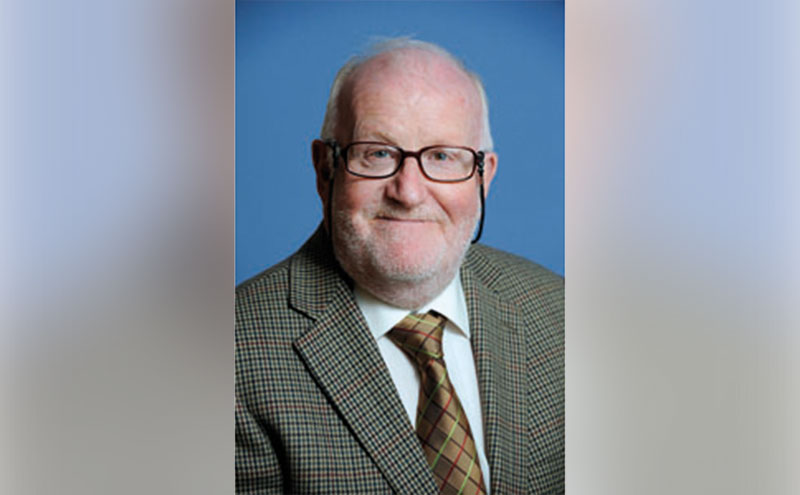
THE individuals behind a push to encourage more widespread use of conflict avoidance techniques within the Scottish construction industry have hailed the progress made over the past 12 months.
Last year, Project Scotland reported that a working group had been established to promote the adoption of the RICS-developed Conflict Avoidance Process (CAP), which includes the use of independent experts capable of stepping in when issues arise on a project to help resolve problems, before they reach a formal route such as adjudication or litigation.
Len Bunton, chair of the working group, told Project Scotland that Scotland is ‘leading the way’ across the UK, with a growing number of firms and organisations signing the Conflict Avoidance Pledge, whereby they commit to try their best to avoid disputes and promote the concept of conflict avoidance.
Len is hopeful that by the end of this year the number of organisations to have signed the Pledge will have at least doubled from the current figure of over 260.
“The UK, Scottish and Welsh Governments are very much looking for the construction industry to adopt a much more collaborative approach to procurement and construction,” he said, “This Conflict Avoidance Process fits in very neatly there because it allows people that are seeing issues developing in contracts to sit down with a third party and work with them to get these issues resolved so that they don’t escalate into full blown disputes, which are rife in the industry and cost an absolute fortune, as well as causing all sorts of relationship problems.”
Len added that a milestone has already been reached in Scotland, with the first appointment to deal with a live issue on a contract. He cited Scottish Futures Trust and NHS Scotland as just two examples of major organisations to have incorporated the CAP process into major contracts.
“It’s a bit of a slow burner,” he said. “With industry, it takes a long time. You’ve got to talk to people and persuade them. It’s taking a bit of time, but I and others are definitely very enthusiastic that we’re beginning to make progress.
“We’re currently looking at getting into place 15-20 people across the UK who we would describe as CAP ambassadors. These are people who are very supportive of the process and can take the message out on a regional basis to their network of clients.”

Len said an ideal CAP ambassador would be somebody who wants to see the industry adopt a much more collaborative approach, has the capability to work with people to identify issues and get them resolved, has plenty industry experience, and understands the issues that develop.
He revealed that a ‘constant stream’ of Tier One contractors and SME’s have come on board. Once an organisation signs the Pledge, Len, and fellow working group member Janey Milligan, who is MD of Construction Dispute Resolution, will contact them to discuss how the process operates, and explain how to make it part of the culture of their business, as well as offering advice on distilling the concept down through their supply chains.
With the construction sector currently facing a number of challenges – from skills shortages and the rising cost of materials all the way through to the ongoing impact from the pandemic – Len believes the time is perfect for new approaches to age-old problems.
“I just think people are fed up with the constant payment and cash flow problems that the construction industry has, and problems on projects that are not getting resolved,” he said. “I believe now, in the market we’re in, people want to get these problems overcome and get on with actually building projects.
“I would hope by the end of the year we’d have doubled (the number of organisations to sign the Pledge) and that we progressively add several hundred companies a year onto it. If we achieve that, it would be terrific.”
Janey Milligan agrees and said there has been significant interest in a process which is ‘more user-friendly and less expensive’ than other methods currently available for the resolution of construction disputes.
“It’s definitely moving in the right direction, and I think the whole Conflict Avoidance Process is a great tool for people to think about in the very beginning of a project,” she told Project Scotland.
“We’re saying to people that if you get an issue, would you not rather try to get some control of it yourself, perhaps with some assistance with a professional that knows what they’re doing to help you find your way through it?”
Janey emphasised the importance of dealing with disputes before they take root and multiply, often leading to opposing sides becoming entrenched and relationships irreversibly damaged.
“(Traditional forms of dispute resolution) cost a lot of money and take an awful lot of time. Even if you win it will cost you money. There’s also the emotional side. You become so ingrained in it that it eats into your life.”
Janey said the onset of the pandemic resulted in a stronger appetite within the industry for collaborative working. While she witnessed that attitude slightly ‘hardening’ again as things developed and projects started to run late or cost more money, she definitely feels that a growing number of sector stakeholders are coming to the realisation that it makes sense to deal with things early and work together in a spirit of cooperation to nip problems in the bud.
“Some people are seeing the light,” she revealed. “We just need to get more!”
Len and Janey both paid tribute to the work the RICS has done in this sector in promoting CAP and bringing a great deal of energy to developing the process across the UK.
Gemma Beasley, head of DRS operations & appointments at RICS, said, “With over 260 organisations signing up to the pledge we are starting to see a real commitment to conflict management in the construction and engineering sector. A key benefit of the RICS Conflict Avoidance Process is that it helps parties to identify possible disputes early and gets them talking. This mitigates risk and protects both commercial relationships and business reputation.
“Many businesses find that having no upfront costs, ‘you don’t pay if you don’t use the process’ is an advantage. This is particularly attractive in the public sector – NHS Scotland have signed the pledge and recently included the Conflict Avoidance Process in their agreements.”
David MacDonald, national hub programme director at Scottish Futures Trust, said, “The RICS Conflict Avoidance Process can pull disputes back from the formal resolution procedure route which is likely to be expensive and time-consuming. Moreover, parties signing up to CAP before a project begins, are demonstrating they are going into contract with the intention of avoiding disputes.
“Successful projects rely on strong relationships, and these rarely recover once a dispute goes to adjudication. The CAP keeps everyone talking, preserves relationships and facilitates improved contracting behaviours and outcomes.”








